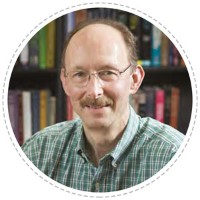Chemical Engineering ChairAccelerated Development of Alloy Materials for Energy Technologies

Professor Gellman’s research is in the area of surface chemistry with particular emphasis on catalytic surface chemistry, selective chemistry on chiral surfaces, tribology and high throughput study of alloy surfaces.
He has developed a number of experiments and methodologies for exploring fundamental aspects of surface chemistry in each of these areas. His research is now focusing on the development and application of high throughput methods for study of alloy surface properties such as catalysis and surface processes relevant to energy technologies.
His laboratory has developed tools for preparing Composition Spread Alloy Films that contain all possible compositions of binary or ternary alloys; AxByC1-x-y with x = 0 → 1, y = 0 → 1-x. These are used for studying alloy properties such as catalysis, corrosion, and adsorption spanning all possible alloy compositions.
In addition to enabling optimization of alloy properties, these studies provide comprehensive datasets that can serve as the basis for development of models that predict the composition dependence of these phenomena on alloys.
Andrew Gellman's research is in the field of surface chemistry and surface science. He holds a BS in Chemistry from Caltech (1981) and a PhD in Physical Chemistry from UC Berkeley (1985). After one year as an ICI postdoctoral fellow at Cambridge University (1986), he joined the University of Illinois at Urbana-Champaign as an Assistant Professor of Chemistry. Now he's holding the Lord Chair of Chemical Engineering at Carnegie Mellon University and where he also serves as the co-Director of the W.E. Scott Institute for Energy Innovation.
